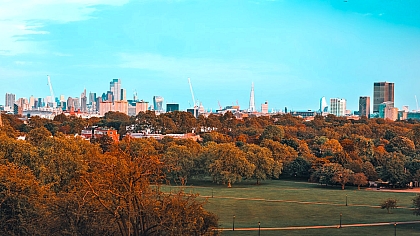
How to Apply to Universities in the United Kingdom
If you want to apply to a university in London or any other city in the UK, the application process might seem pretty overwhelming at the beginning, especially if you’re an international student.
And if you don’t know what to expect from this entire process, this post is a good place to start your application journey. We’re going to lead you through every step of the application process from starting your enrollment process to receiving decisions.
UCAS
What you first need to do is to create an account on UCAS, a central application system in the United Kingdom. On the UCAS website, you need to fill out a form, which will be forwarded to all universities to which you want to apply. It’s a really straightforward process, which requires you to enter your personal details, grades, and courses you want to enrol in. Note that you can pick up to five universities at UCAS.

The next thing you need to do is provide a personal statement, which you can create with the help of RapidEssay.com, a professional academic writing service. Also, you’ll need a reference letter from your mentor. Don’t forget to enter the contact details of your referee so that the members of the admissions committee can verify the information you provide. Lastly, you need to pay a fee to have your application forwarded to the chosen universities.
Tests
You may have to take a test to complete your application. This doesn’t necessarily mean that you need to travel to the UK. Lots of schools and universities have test centres in other countries. So, you want to check if there are local test centres in your country so that you can take all the mandatory tests from the comfort of your home. When making all the necessary arrangements, be sure to pick a suitable date and time to have enough time to prepare for your exam.
Interviews
It’s not a secret that many prestigious universities, including the universities of Oxford and Cambridge, have interviews with their candidates after they submit their applications. Whether you need to travel to your chosen university or not depends mainly on where you live. In the majority of cases, applicants need to come to the UK to take their interviews face-to-face. But in view of the current political and pandemic situation in Europe, chances are you will be asked to take your interview online. In this case, you also need to prepare carefully and be ready to answer both personal and course-related questions.
Decisions
Eventually, you will get a decision from the universities you apply to. The status of your application can be checked on UCAS Track. UCAS Track is a very convenient platform, which enables all students who have submitted their applications through UCAS to keep abreast of their application progress. Once you log in to your account, you will see every university you’ve applied to, as well as the courses and classes you want to enrol in.
Also, you’ll see whether your chosen university has decided if you’re a suitable candidate for them, once the decision is made. UCAS will also send you an email notification so that you don’t miss the important information.
Note that there are three ways things can actually go. In the best-case scenario, you’ll get an offer from the university. It means that you’re automatically enrolled at a school or university you applied to. The only thing you need to do is to confirm and accept the offer. What also may happen is that you get a conditional offer. In this case, the university will offer you a place to study there, but with a caveat. Among the conditions may be having a certain grade on your school certificate, achieving a minimum grade in a language certificate, etc.
The third thing that might happen is, unfortunately, a rejection. If your application is rejected, don’t get frustrated, and don’t drop an attempt to get into the university of your dreams.
Also, keep in mind that you can select up to five options, which you think can help you get the qualifications and skills that will give you increased access to job opportunities. So, if you’re rejected from one of your choices, you will still have four choices left.
If you receive an offer or conditional offer, don’t hesitate to take action. Note that there will be a deadline until which you need to figure out if you’ve made the right choice and if you really want to take your uni up on this offer. So, do not procrastinate and jump headfirst into fascinating college life!











